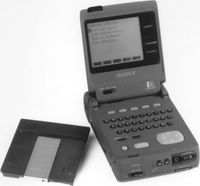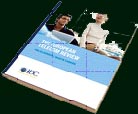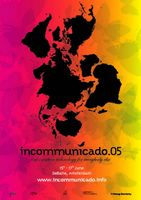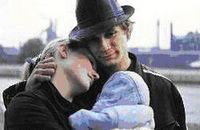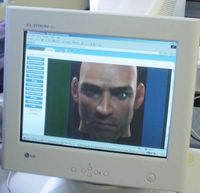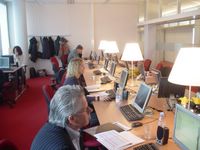In Europe we are quite involved in the political process of becoming a European Union, complete with a constitution. What ever started after the Second World War as an economic union for Steel and Coal grew into a European Economic Community (EEC) and eventually into a European Union. Now this Union has grown from 15 member states to 25. With this extension also the rules and measures will have to be changed. For example, the European parliament will be playing a larger role in the decision process. So now the countries have produced a sort of a constitution, or better an updated collection of agreement clauses, for the European Union, on which the member states have to vote. Some of the European countries ask only the parliament to ratify this agreement (Austria, Belgium, Lithuania, Hungary, Slovenia, Italy, Greece, Germany and Spain. Together theses countries represent 49 per cent of the inhabitants of the European Union. Other countries consult the population by way of plebiscite; this is not a decisive vote, but just an advice to the government and parliament. Today there will be a plebiscite in France. It is going to be very interesting to see how many people will vote OUI or NON. A negative vote will have an effect on The Netherlands, where Wednesday a plebiscite will be held. Everyone is asking each other: what will you vote? JA (YES) or NEE (NO). Well I am clear about it. I am going to vote YES.


There are many reasons not to vote in favour of the agreement to a constitution. First of all it is not a proper constitution, but a composition of earlier agreemenst. There are also many other arguments. In the Netherlands there are groups that like to use their vote against the present government. And if I had no other arguments I might have used my vote that way.
The negative trend in The Netherlands can rather be explained by bad gut feelings. The change from the Dutch guilder as valuta to euro was not done on the right exchange value. Besides, The Netherlands has been contributing most per inhabitant to the European Union over the past years.
But in my opinion all these negative reasons represent the disinterest in the European Union in the past years. Besides the inclusion of another 10 member states with some aspiring countries in the waiting room has gone too fast and has not properly been propagated. For many Dutch people the joining of Turkey would be unacceptable, as they still think of Europe as a cultural area with a Christian origin.
My best personal argument for voting against the agreement for a EU constitution would be that I still get money from the European Commission. Not just a fee for a few days' work, but a lot of money, given my humble consultancy. Last year September our company concluded an EC sponsored project with flying colours and would get our final payment. By Christmas we heard that all the papers were ready and okayed. But we still have not received a penny of the final payment. And this while the European Commission says in every document that Small and Middle seized Enterprises with 10 to 500 employees are very important to the economic growth of the Union. The bureaucratic actions of the EU are often contradictory to their words.
So why do I vote YES. I have been working with the European Commission since 1983. I got involved in a newsletter project,
DOCDEL 26. After that I have regularly worked for the Commision in many roles and as a company we have also been involved in EU sponsored projects (INFORM,
ACTeN,
X-Melina, INYOP).
Of course it easy to say, that this is business. But it more. Over the years I have built up a network throughout Europe, from Italy to Finland, from Romenia to Ireland, from Iceland to Greece. This network has delievered me contacts, business and inspiration. In fact in more than 28 European countries I have contacts. And some of those contacts have become dear friends.
To me, the main argument turns around creating a cultural, economic and research space with a common policy, which can compete with the States and with China. A visit to China makes clear that Europe should be prepared to be swamped with T-shirts now, with chips tomorrow; and tomorrow is closer by than many Europeans think. The Chinese statistics are scaring. More than 50 per cent of the population is between 18 and 35. And only 0,6 per cent of the 1,2 billion Chinese inhabitants are older than 60; compare that to Europe, where the grey wave of 60+, inclusive of myself, is rolling over The Netherlands and Germany.
So for me, arguments like a better campaign against terrorism are weak arguments; in fact they just play on fear. Those campaigns will be put together all the same, regardless of a constitution. We should strive after a smart European Union for the benefit of all member states.
So I hope my charming French friend Eve will vote OUI today, while I will vote JA on Wednesday, before I leave for Vienna.










